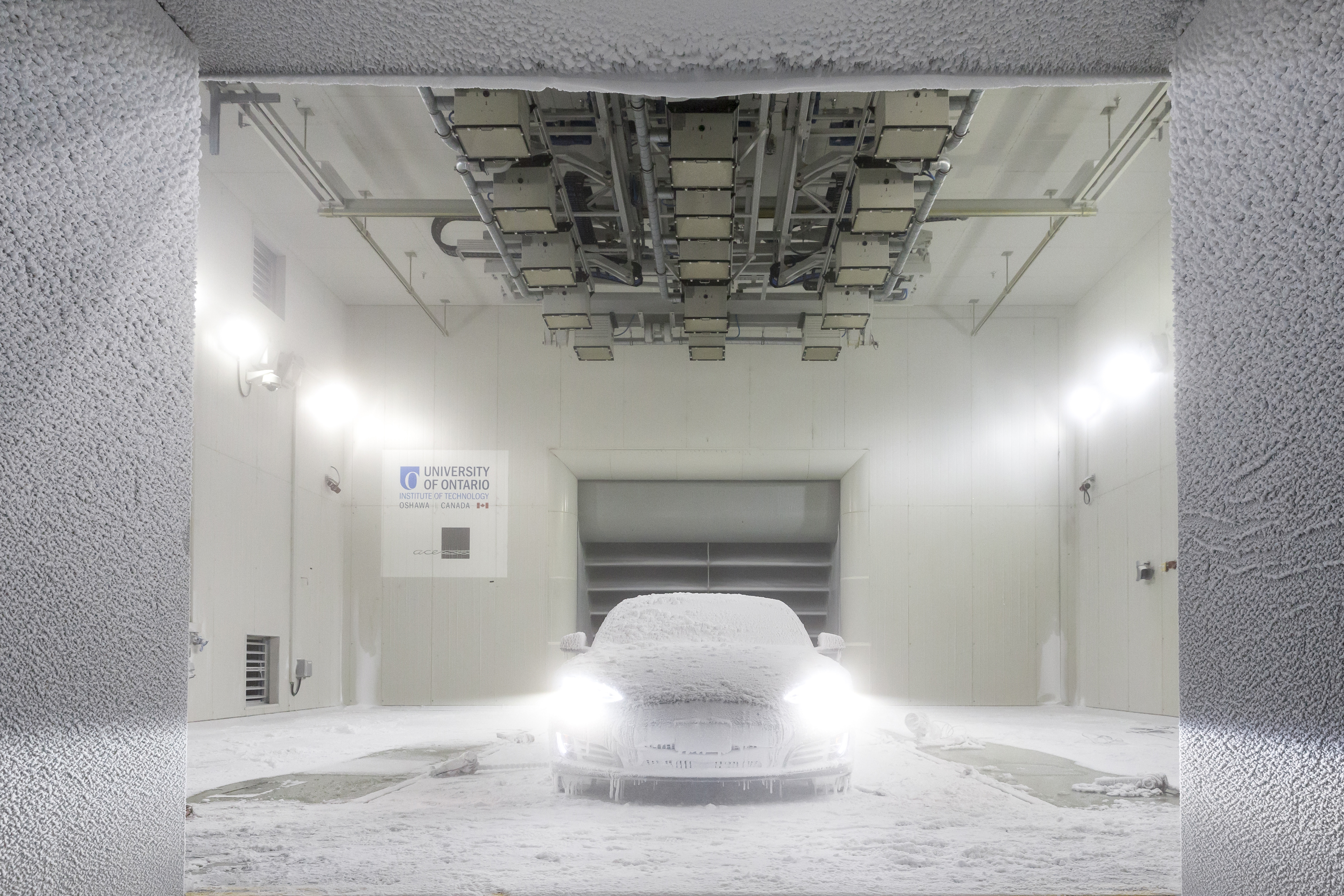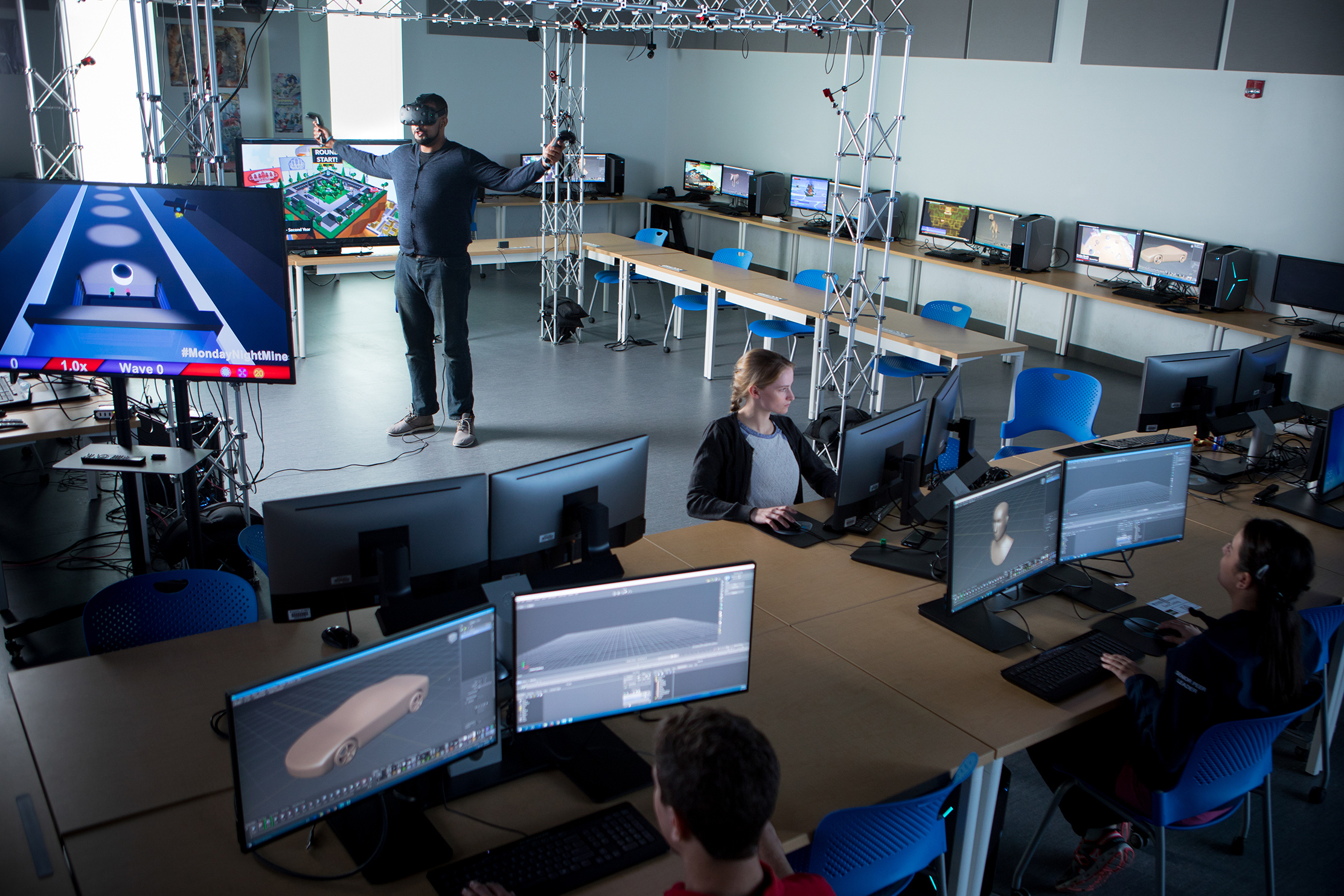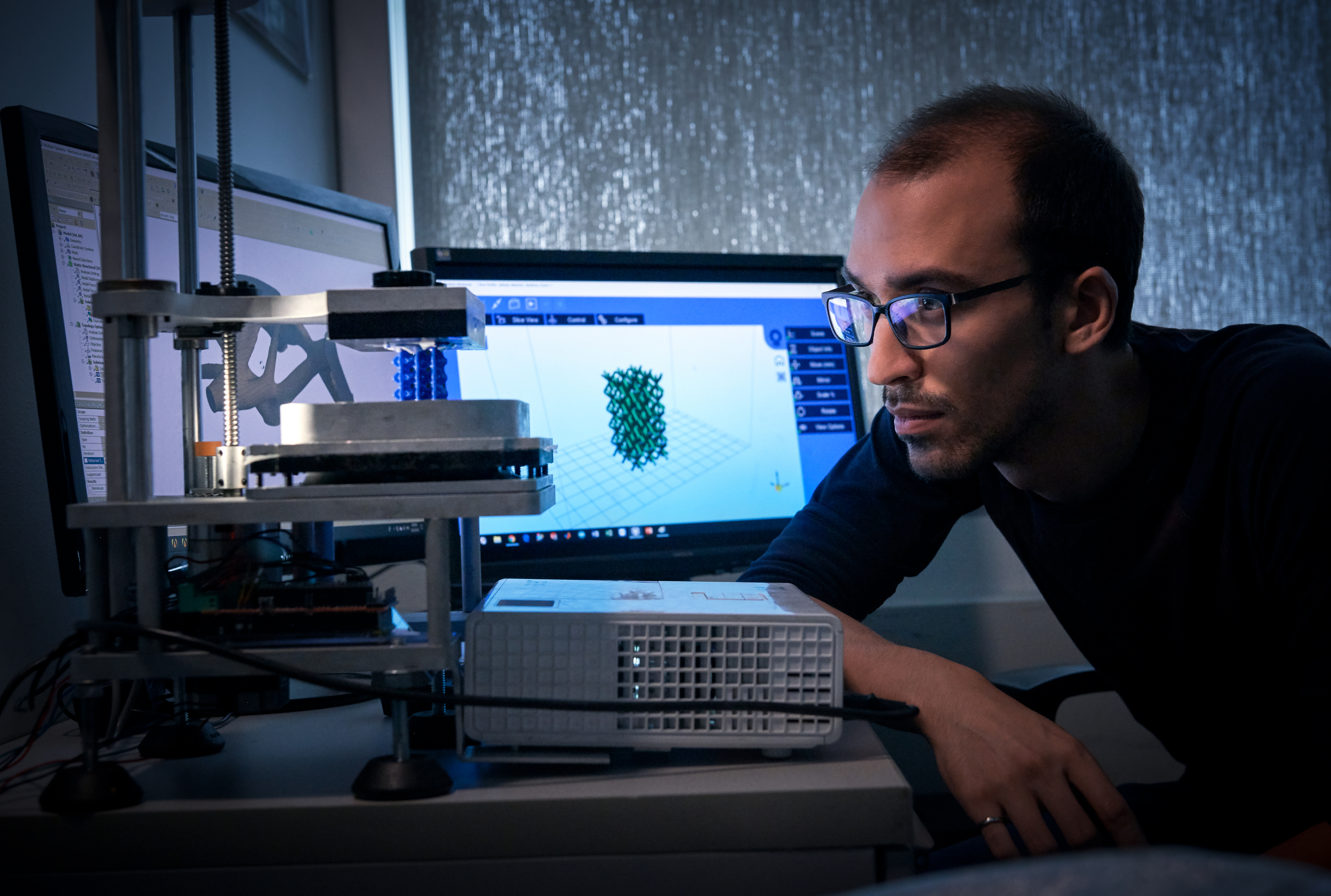Research
The Aerodynamic and Climatic Adaptation Research centre is a research hub focused on developing innovative technologies and strategies to improve the performance and efficiency of buildings, vehicles, and other structures in various aerodynamics and climatic conditions. The research at the Institute is interdisciplinary, covering several fields, including aerodynamics, aeroacoustics, adaptive digital design, surface and body fabrication, geometric and dimensioning metrology, climatic engineering, fluid-structure interactions, and topology optimization which are clustered in three groups of Climatic Aerodynamics, Aeroacoustics and Fluid-Structure Interaction, and Solid and Surfaces. Brief description of each cluster with their main research field are provided here.
Our research is dedicated to driving the development and advancement of cutting-edge technologies and practices that enhance the efficiency, safety, competitiveness, and sustainability of various fields such as road and marine transportation, air travel, residential and industrial structures, defense, sports, and energy sectors. By focusing on aerodynamics, fluid-structure interactions, body and surface optimization, and climatic adaptation research, we push the boundaries of what is possible and deliver innovative solutions that address real-world challenges. Our research team is committed to pioneering advancements that not only meet current demands but also anticipate future needs, ensuring a positive impact on society and the environment.
Also, below are the different areas of research if you want to add them too:
1) Climatic Aerodynamics (CA):
Aerodynamics is concerned with the study of the flow of air around objects and its effects on their performance. This area of research encompasses topics such as bluff body aerodynamics, flow separation, turbulent flow, coherent structure dynamics, and flow control, with applications to aerostructures, buildings, and vehicles. In the context of the Institute, researchers would be exploring how to optimize the aerodynamic performance of aircrafts, buildings, ground vehicles, and many other structures toimprove their safety, performance, and energy efficiency

2) Aeroacoustics and Fluid-Structure Interaction (AFSI):
Aeroacoustics is the study of sound generation and propagation through air, particularly as it relates to the design of aircraft and other high-speed vehicles. This area of research includes topics such as sound transmission, sound absorption in fluids, radiation and reception of sound waves, resonators, acoustic filters, instability of shear flows and their coupling with sound waves, and active noise control. Researchers at the Institute would be investigating how to minimize noise pollution caused by vehicles and other structures in urban environments.

3) Solids and Surfaces (SS)
 The research on Solids and Surfaces considers SS design, fabrication, and evaluation. In the field of SS-design, there will be a systematic investigation and research on the classifications of the geometric properties and characteristics on various surfaces and solid bodies along with developing software and digital tools for their design, modeling, and discretizing compatible with multi-physics simulation tools. Adaptive digital design involves the use of Multiphysics analyses and simulation tools to generate and evaluate design alternatives, with the goal of optimizing performance and efficiency. In the context of the institute, researchers would be exploring how to use digital design tools to create structures that can adapt to changing environmental conditions, such as temperature and wind. Topology optimization research in design of the solid bodies defines material distribution to achieve a desired aerodynamic performance while the functionality and fit requirement are satisfied.
The research on Solids and Surfaces considers SS design, fabrication, and evaluation. In the field of SS-design, there will be a systematic investigation and research on the classifications of the geometric properties and characteristics on various surfaces and solid bodies along with developing software and digital tools for their design, modeling, and discretizing compatible with multi-physics simulation tools. Adaptive digital design involves the use of Multiphysics analyses and simulation tools to generate and evaluate design alternatives, with the goal of optimizing performance and efficiency. In the context of the institute, researchers would be exploring how to use digital design tools to create structures that can adapt to changing environmental conditions, such as temperature and wind. Topology optimization research in design of the solid bodies defines material distribution to achieve a desired aerodynamic performance while the functionality and fit requirement are satisfied.
SS-fabrication at AeroClimar address the most efficient and accurate methodologies to fabricate prototypes of solid and surfaces. These prototypes are highly needed for various experimental studies on SS including the wind tunnel tests and evaluation. Digital manufacturing technologies including Additive Manufacturing (AM) will be focused in this research to develop fast and customized fabrication processes suitable for climatic aerodynamic tests and evaluations.
SS-Evaluation include research on metrology and inspection of various solids and surfaces needed to evaluate or understand the geometry and surface quality of fabricated or unknown objects. SS-evaluation includes inspection of geometric features, large scale metrology, meso-scale metrology and inspection, and nano and micro scale metrology to characterize surface roughness and other surface qualities.